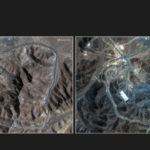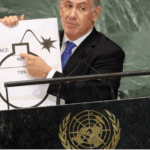- Contract
- Bonn, Germany

United Nations University
Job Description
<!–
Description
–>
The United Nations University Vice-Rectorate in Europe (UNU-VIE), established in 2007 in Bonn, Germany, is one of two UNU Vice-Rectorates and the only one located in Europe. It supports the institutional development of UNU, facilitates collaboration across UNU and the UN, as well as fosters strategic partnerships – particularly with the Global South – and shares knowledge and expertise through the development of joint activities and projects. In addition, UNU-VIE conducts frontier research reinforcing existing UNU programming and supporting the implementation of key UN priorities. More information about UNU-VIE can be found here: https://unu.edu/vie.
The Pan African Cooperation and Educational Technologies (PACET) division focuses on improving livelihoods towards self-sufficiency and equality in the Global South. The division aims to advance emerging solutions through innovative research, the incubation of solutions and the promotion of strategic responses in line with Global South agendas and UN priorities. The division’s research focuses on two main pillars. The first concerns agri-food systems innovation, which examines how the development and adoption of improved agricultural practices, technologies and ways of organising within the agri-food sector can enhance productivity, resource efficiency, system resilience, adaptation, market opportunities and environmental sustainability. The second working pillar focuses on green innovations, digitalization and entrepreneurship, by means of which the division contributes to strengthening the entrepreneurial ecosystem and supports youth and women to create innovative solutions to address local challenges through business/start-up development, job creation and leapfrogging green sectors. The third pillar focuses on educational technologies, and seeks to empower and capacitate youth, innovators, entrepreneurs, communities and practitioners by leveraging digital and educational technologies through co-designed practical learning experiences and applied research in training methodologies. PACET’s work informs the policy and action of UN organizations and Member States, and provides pilot models of innovative solutions developed jointly with universities, the private sector and civil society actors. This helps strengthen policymaking and implementation in line with PACET’s research priorities whilst simultaneously creating equitable partnerships with stakeholders worldwide.
Responsibilities:
Under the overall authority of the UNU Vice-Rector in Europe/Director of UNU-EHS, the Head of the PACET Division at UNU-VIE is responsible for the following:
Manage the PACET Division:
- Lead and manage the PACET team, including planning and allocating work assignments; mentoring personnel, conducting performance appraisals, support with professional development and participate in recruitment and selection processes for the team and other divisions;
- Manage the day-to-day operations of the PACET Division with respect to its scientific profile; budget submission, allocation and monitoring; personnel planning; and implementation of administrative policies;
- Develop a long-term strategy for the Division, with a particular focus on agri-food systems innovation, green innovation and entrepreneurship, specifically on youth and women, and educational technologies embedded into the overall strategy of UNU in Bonn;
- Promote academic excellence of the Division by integrating qualitative and quantitative methodologies;
- Enhance the global visibility of the Division’s work through diverse channels as applicable;
- Serve as a Certifying Officer for UNU-VIE and as Officer-in-Charge for UNU-VIE, when assigned.
Lead research, knowledge management, and dissemination on PACET-specific topics:
- Conduct frontier research applying futuristic thinking/futures literacy and applied research to enhance people’s livelihood;
- Promote the effective use of scientific knowledge available at UNU-VIE and UNU-EHS in addressing global and emergent issues relevant to PACET’s research agenda;
- Publish research findings in collaboration with colleagues at UNU-VIE, UNU-EHS and other institutions, through international peer-reviewed journals and book chapters;
- Disseminate PACET’s research to broader, non-academic audiences via diverse formats including, media interviews, writing op-eds and social media engagement in close collaboration with the UNU-VIE Communication Unit.
Manage the resource mobilization strategies for PACET:
- · Develop and implement, resource mobilization strategies on policy-relevant topics that also create research opportunities for PhD students;
- · Manage the Division’s financial resources ensuring compliance with UNU-VIE governance standards and donor requirements;
- · Establish and maintain partnerships with governments, donors, and other stakeholders to support programme development and implementation and resource mobilization;
- · Prepare and finalize donor reports, negotiate and/or approve cost-sharing agreements with donors; establish clear reporting frameworks for timely communication with donors.
Conduct education and training initiatives:
- Conceptualize, design and manage e-learning activities related to PACET projects and capacity building at UNU-VIE in collaboration with relevant UNU-EHS divisions;
- (Co-)supervise Master’s and PhD students at UNU-VIE and UNU-EHS.
Represent UNU, and create and maintain strategic partnerships and networks:
- Engage in international policy processes and agendas based on relevance to PACET;
- Promote and strengthen partnerships and collaboration with a wide range of stakeholders including but not limited to, UN agencies such as UNFCCC, other UNU institutes, UNU-affiliated entities in Africa and other Global South countries through UNU Hubs, global research networks, the Pan African University, the University of Bonn, the Bonn Research Alliance, particularly in Europe and Africa, the African Union and related institutions, as well as German and international actors and institutions in higher education, research and development cooperation in/with Africa.
- Represent UNU-VIE on international scientific networks and/or boards and at major conferences and events.
- UNU is seen as a reliable and trustworthy partner by research partners, governments, donors, and civil society;
- Timely development and implementation of a resource mobilization strategy, resulting in sufficient resources to implement the PACET Division’s work plan and the securing of funding for the continuation and growth of the PACET team;
- Management of the performance of personnel and quality knowledge products.
Qualifications
Education and certification:
- Ph.D. in environmental sciences, natural sciences or another relevant field
Required skills and experience:
- At least five (5) years of working experience in environmental sciences, natural sciences, research management, some of which preferably in an international and multi-cultural environment;
- Experience in networking with research and research policy stakeholders;
- Experience in fundraising;
- Knowledge in managing administrative and financial management processes;
- Excellent written and verbal communication skills in English;
- · Experience working in Africa.
- Other desirable skills: Excellent communication and didactic skills; initiative, strong conceptual abilities; sound judgment; resilience; excellent team player with strong interpersonal skills and the ability to work in a multi-cultural, multi-ethnic environment with sensitivity and respect for diversity and various stakeholders; excellent leadership and team spirit.
Language Requirements:
- Fluency in English is required;
- Fluency in French desired;
- Knowledge of an additional UN official working language is an asset.
Source: https://careers.unu.edu/o/academic-officer-head-pacet-fta-ip-p3
<!—
Recommend your friend
<!–
–>
***Show some love and please mention geopolist.com.com* in your application***
***We also feel loved when you share it***




